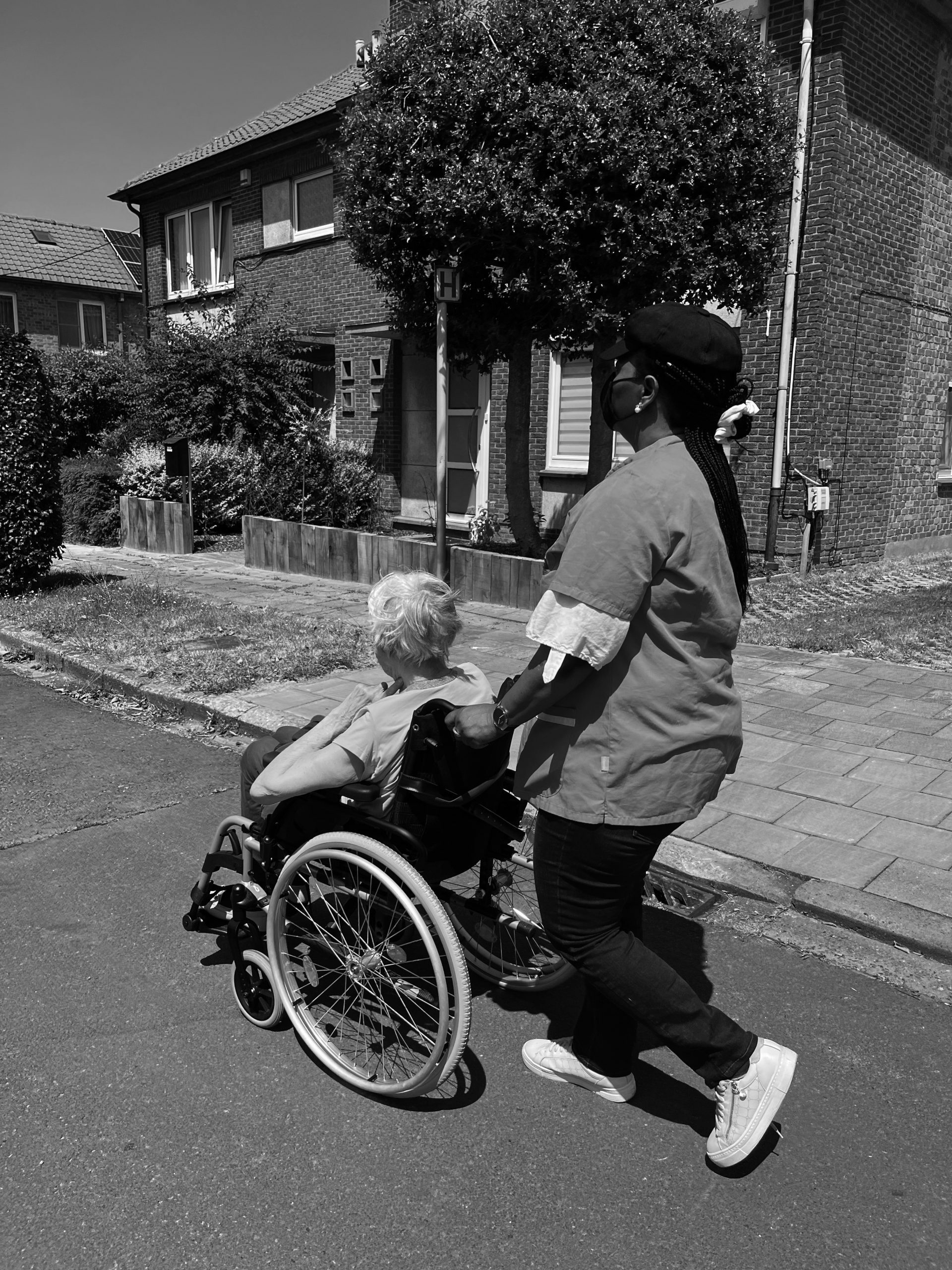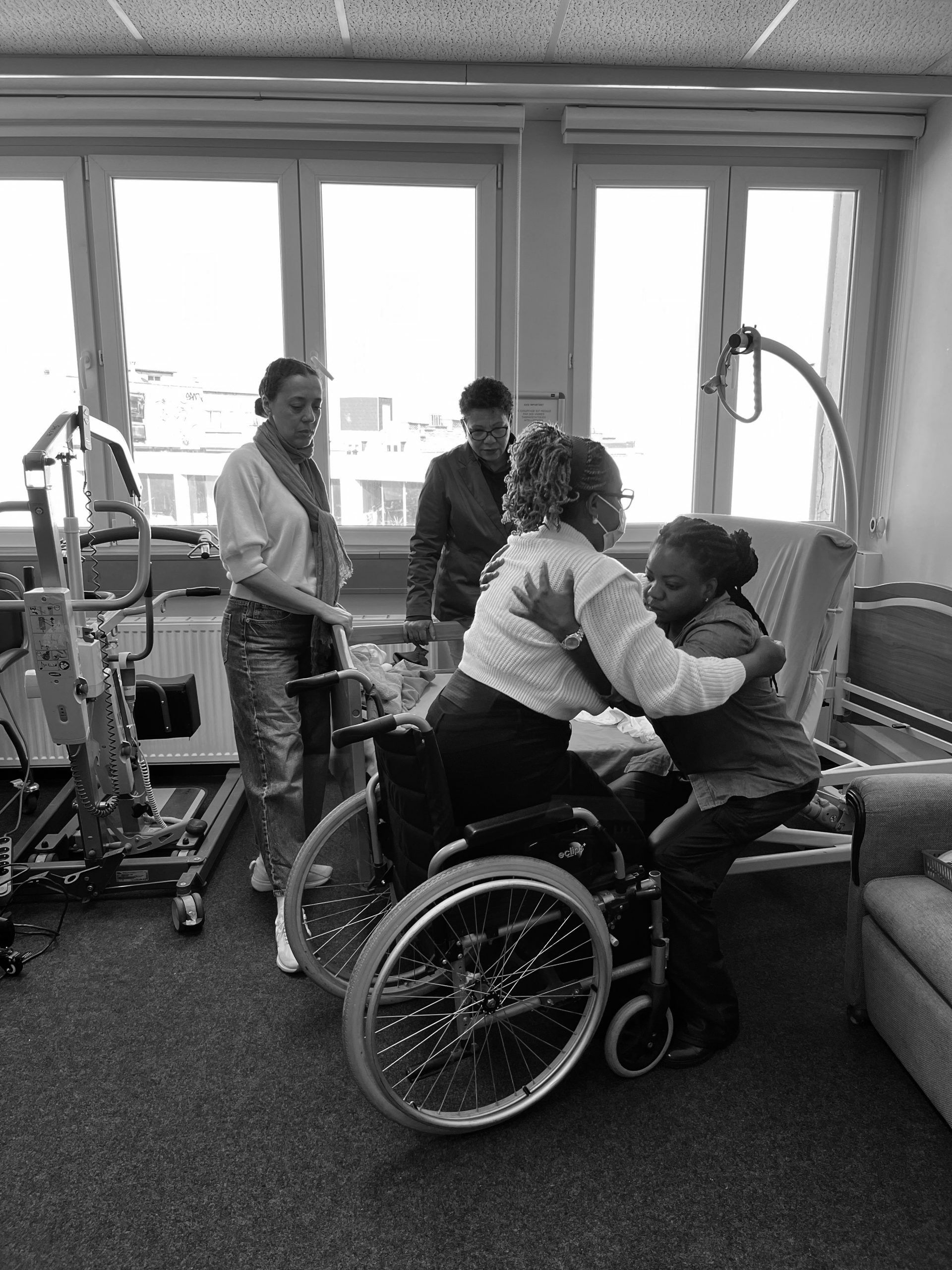La entidad en datos
Main activity: Home support for adults with loss of autonomy and social inclusion through employment.
Year founded: 1999
Legal structure: ASBL (non-profit organisation)
Number of people currently employed: 100 (81 FTE) Region/Country in which it operates: Brussels-Capital Region, Belgium
Category: Home care, inclusion, reduction of inequalities, education and training

CLAVES DEL ÉXITO E IMPACTO EN LA SOCIEDAD
Gammes is a non-profit social economy enterprise based in Brussels, Belgium. Founded in 1999, its mission is twofold: to provide quality home support services to adults experiencing a loss of autonomy (elderly, people with disabilities, or in end-of-life situations), and to support the social and professional integration of low-skilled jobseekers through employment as Home Support Workers (Garde à Domicile – GAD)
As a socially responsible employer, Gammes has grown steadily, now employing over 95 people. The majority are recruited through 24-month social economy insertion contracts (ECOSOC). Gammes has developed a structured path for these workers, including training, fieldwork, mentoring, and coaching, helping them gain skills and employment.
Its legal form as a non-profit (ASBL) offers the flexibility to focus on public utility and community impact rather than profit. This structure supports reinvestment in services and the people served. However, balancing social mission with economic sustainability— especially in a context of partial public funding—remains a challenge
Gammes addresses urgent societal needs:
– The growing demand for personalized, respectful, and dignified home care.
– The need for inclusive employment pathways for vulnerable populations.
Its success is based on three pillars:
– An innovative care approach based on the Montessori method adapted to the elderly and the Patient-Partner approach, encouraging autonomy and active participation.
– A complete and tailored social inclusion trajectory for low-skilled jobseekers, combining training, work experience, mentoring, and support.
– Constant innovation through a dedicated Innovation and Expertise Unit, developing new methods (digital inclusion, inclusive housing, outreach models).
Gammes ensures that no one is left behind—neither the people receiving care nor the workers providing it.

DESAFÍOS ENFRENTADOS
– Recruiting and retaining qualified staff in a demanding sector.
– Adapting to the complex needs of a multicultural urban population.
– Maintaining quality services while managing financial constraints due to underfunding.
– Ensuring the inclusion of men in a traditionally feminized profession.
– Navigating political uncertainty and changing funding frameworks.
ESCALABILIDAD Y REPLICABILIDAD
Yes, the Gammes model is replicable. It offers a strong framework adaptable to other cities or regions:
– A structured insertion path that can be implemented with local training partners.
– An adaptable home care service model based on person- centered and inclusive practices.
– Tools and processes (like digital patient profiles, outreach detection projects) transferable to other settings.
The model requires local partnerships and public support to be effectively scaled.
CONCLUSIONES Y MORALEJA
Gammes demonstrates that social economy actors can meet critical needs while promoting inclusion, dignity, and sustainability. Key lessons:
– Integrating care and employment inclusion offers powerful mutual benefits.
– Investing in training and innovation pays off in service quality and workforce empowerment.
– Working across silos (care, employment, community outreach) amplifies social impact.
Gammes encourages other organisations to build alliances, invest in human-centred approaches, and believe in the transformative power of inclusion.